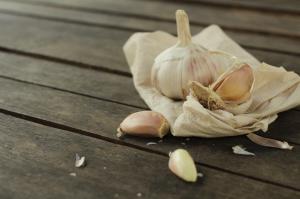Introduction
Oil spills are one of the most harmful environmental disasters that can occur in salt water marshes. These disasters can have catastrophic effects on the delicate ecosystem of marsh plants, leading to severe ecological damage that can take years to repair. In this article, we will explore how oil spills affect salt water marsh plants and the long-term consequences of these disasters.
Oil Spills and Salt Water Marsh Plants
When an oil spill occurs in a salt water marsh, it can have a devastating impact on the plants that make up the ecosystem. Oil spills can coat the leaves and stems of plants, clogging their pores and suffocating them. The slick, sticky nature of the oil can also prevent sunlight from reaching the plants, leading to a reduction in photosynthesis and a decline in overall health.
In addition, oil spills can disrupt the delicate balance of nutrients and minerals in the soil, leading to a decrease in the availability of these essential building blocks for plant growth. This can stunt the growth of plants and leave them more susceptible to disease and predation.
Long-Term Consequences
The long-term consequences of oil spills on salt water marsh plants can be severe. In some cases, entire ecosystems can be wiped out, leading to a loss of biodiversity and a decrease in ecological resilience.
Even in cases where the direct impact of the oil spill may not have been fatal for the plants, the long-term effects can linger for years. The toxic chemicals and pollutants that are released during an oil spill can seep into the soil and groundwater, affecting the root systems of plants and making them more susceptible to disease and stress.
Recovery Efforts
In the aftermath of an oil spill, recovery efforts are essential for the health and survival of salt water marsh plants. These efforts can include physical removal of the oil, as well as methods for cleaning the soil and restoring the balance of nutrients in the ecosystem.
Replanting damaged areas with native species can also help to jumpstart the recovery process and rebuild the ecosystem. However, these efforts can take years or even decades to fully restore the health and vitality of the marsh plants and the ecosystem as a whole.
Conclusion
Oil spills are devastating environmental disasters that can have a severe impact on salt water marsh plants. The direct impact of the oil can suffocate and starve the plants, while the long-term effects can linger for years and have cascading effects on the overall health and resilience of the ecosystem. Recovery efforts are essential for the survival of marsh plants after an oil spill, but it can take years to fully restore the balance and health of the ecosystem.

 how many times do yo...
how many times do yo... how many planted tre...
how many planted tre... how many pine trees ...
how many pine trees ... how many pecan trees...
how many pecan trees... how many plants comp...
how many plants comp... how many plants can ...
how many plants can ... how many plants and ...
how many plants and ... how many pepper plan...
how many pepper plan...




























